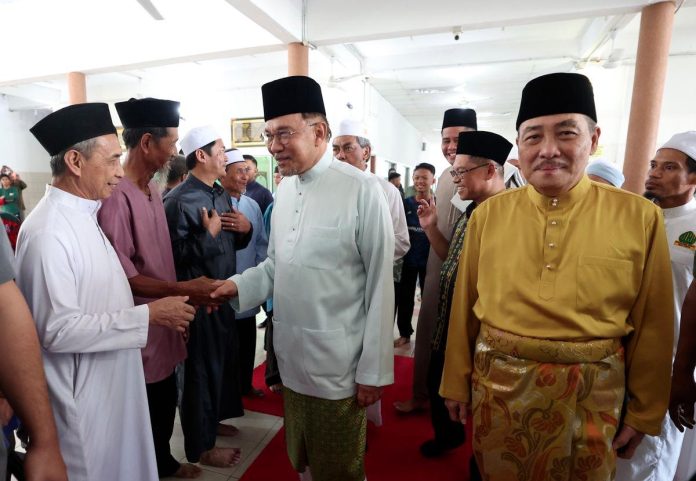PENAMPANG: Sabah’s development agenda will advance more effectively with strong support and close cooperation between the Federal and state governments, said Chief Minister Datuk Seri Hajiji Noor.
He expressed confidence that a solid relationship between the two parties would be a catalyst for the successful implementation of the state’s development policies.
“This cooperation is vital to ensure the people of Sabah benefit directly,” he said at the 2025 Kaamatan Festival celebration held at the Hongkod Koisaan Hall, Kadazandusun Cultural Association (KDCA), here today.
The event was officiated by Prime Minister Datuk Seri Anwar Ibrahim, and attended by Deputy Chief Minister II Datuk Seri Dr Joachim Gunsalam and KDCA president Tan Sri Joseph Pairin Kitingan.
Hajiji also expressed his appreciation to Anwar for officiating the event, describing his presence as a clear sign of the Federal government’s commitment to Sabah.
He noted that this year’s Kaamatan Festival, themed “Kaamatan Untuk Semua, Kaamatan For All, Kaamatan Montok Toinsanan”, marks the 65th official celebration since its formal introduction in 1960.
“Kaamatan is not merely a cultural celebration, but a symbol of unity and harmony among the people of Sabah, values that must be preserved. It does not belong to any one ethnic group, but to all Sabahans. It reflects the spirit of goodwill and cohesion that underpins the state’s stability,” he said.
Hajiji further affirmed the state government’s continued commitment to strengthening rural socio-economic development through a range of strategic approaches, such as agricultural modernisation, support for small and medium enterprises, and the promotion of community-based tourism.
“These efforts form a critical pillar of our mission to enhance the well-being of the people holistically and inclusively, in line with the Sabah Maju Jaya development plan,” he added.
He emphasised the importance of expanding economic opportunities for rural communities, through modern agriculture, community-based tourism and skills training to help increase household income and reduce the poverty rate.
He highlighted that the reactivation of the Sabah Padi and Rice Board is aimed at enhancing food security through increased local rice self-sufficiency.
“Our target is to achieve 30 percent rice self-sufficiency by next year and 60 percent by 2030. This is a vital step towards reducing import dependency and strengthening local food supply resilience,” he said.








